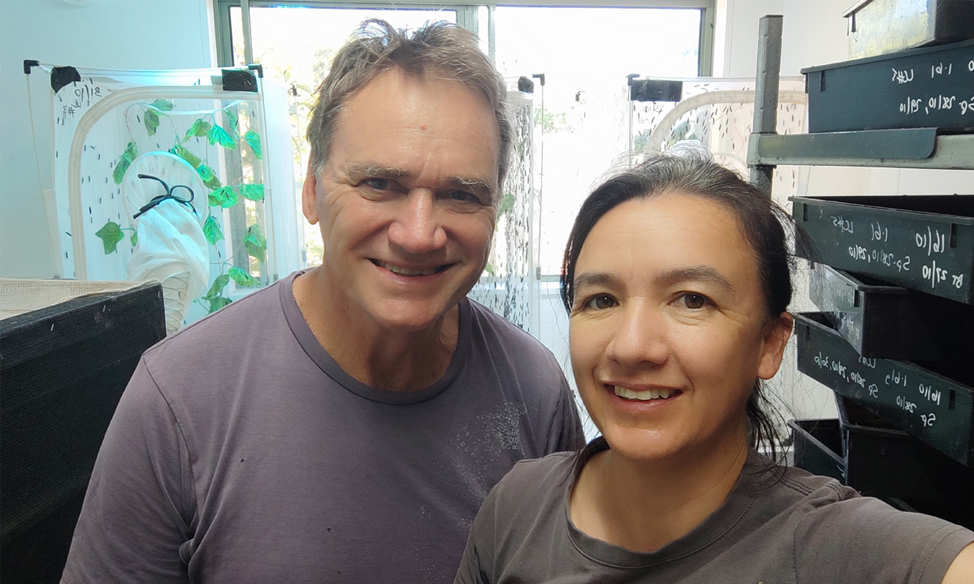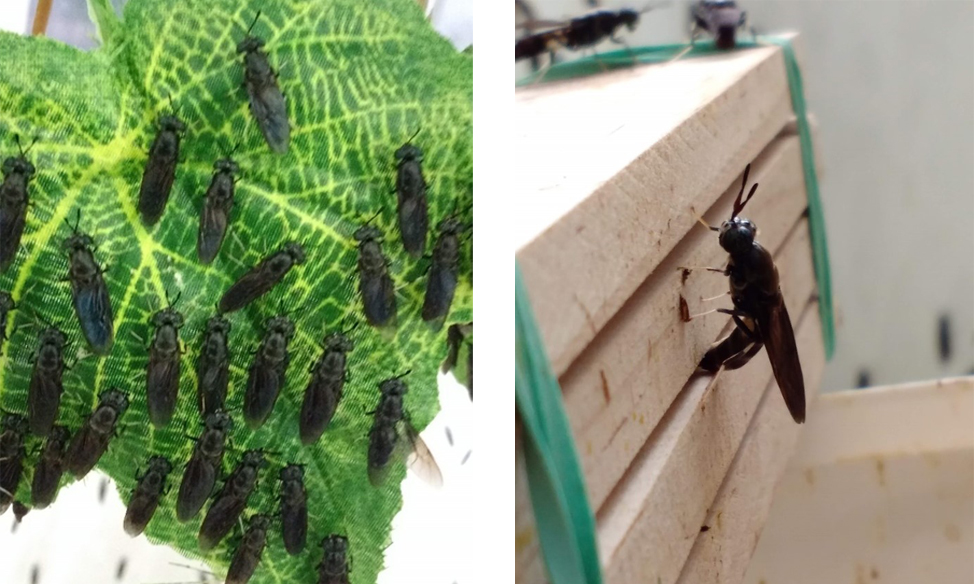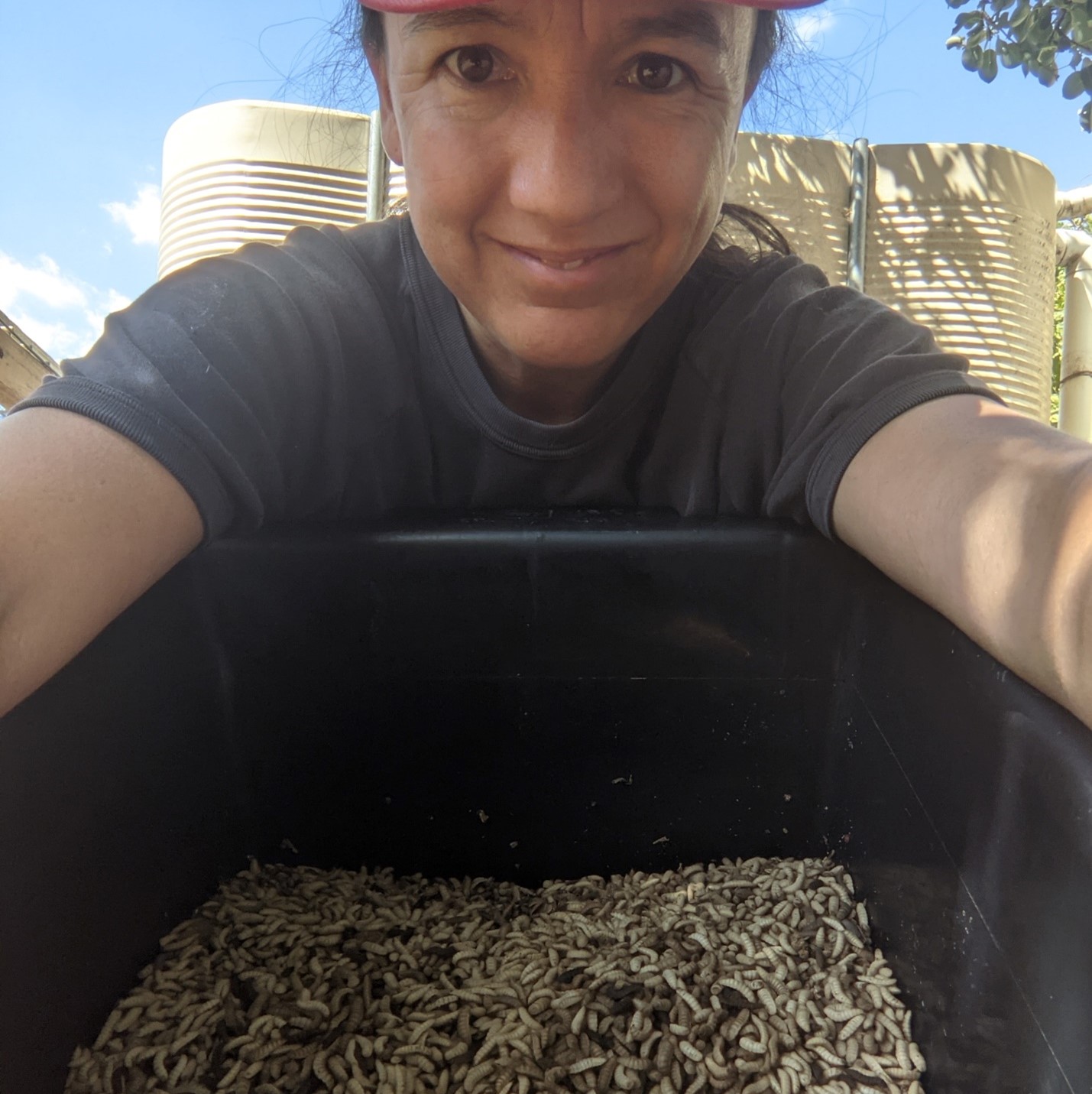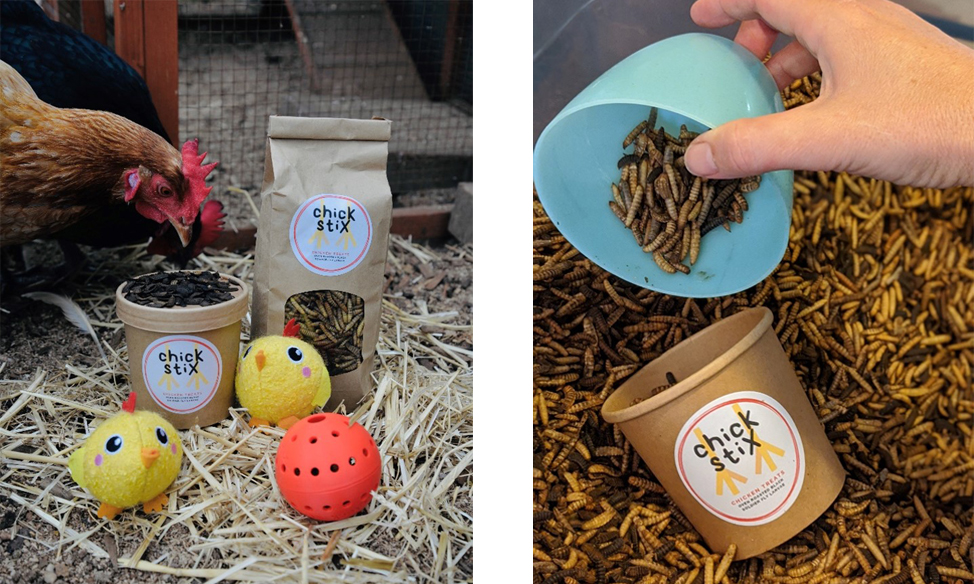31 January 2022

Jeannine Malcolm
Founder & Manager at Mobius Farms
Bachelor of Education (Primary and Middle)
Living and working in the celebrated Barossa Valley, it’s no secret to Jeannine Malcolm that South Australia is home to a world-class food and wine industry. Though in such a thriving culinary business comes inordinate amounts of waste.
While many operators try to divert and recover food waste where possible, there is still a considerable volume that is dumped each year – Green Industries SA (GISA) estimate only 12% of commercial food waste (i.e. from restaurants, hotels, caterers etc.) is currently diverted from landfill.
To combat this waste – and its significant contribution to land pollution and greenhouse gas emissions –Jeannine, along with partner Chris Malcolm, have established Mobius Farms, where they ingeniously turn into this waste into a valuable multi-use product.
Mobius Farms is the first commercial Black Soldier Fly farm in South Australia and the first organic food waste insect bioconversion facility in South Australia, producing an oven roasted Black Soldier Fly Larvae (BSFL) product to compete with imported dried mealworms as feed for reptiles, fish and poultry.

With BSFL able to be reared intensively with very minimal water consumption, they are a perfect sustainable source of insect protein and an ideal substitution for less sustainable ingredients such as soy, meat and fish meal in a range of pet and livestock products.
“We turn ‘waste’ into value by collecting leftover food from commercial kitchens, restaurants and caterers around the Barossa Valley and feeding it to a fabulous insect called the Black Soldier Fly Larvae,” Jeannine says.
“This little grub is a voracious eater with an appetite for almost any foodstuff. From bread to brewery mash, pickles to potatoes, oranges to offal; there’s not too much they won’t eat. They can even eat twice their body weight in food per day; that's equivalent to a human eating 1,400 hotdogs!”
With an impressive nutritional value high in protein, fat, calcium and other minerals (approximately 40% protein, 12-28% fat and 8% minerals), the larvae or prepupae are then harvested and can be dried, milled into a meal or processed into an oil for use as an ingredient. In fact, the process is ten times faster than usual composting.
What’s even better is the BSFL’s frass (manure) is an excellent organic fertiliser and soil improver. This means Mobius Farms have also been collecting this composted by-product and recycling it to local community gardens and growers who produce food for our restaurants, closing the loop on waste.

Mobius Farms are one of three inspiring social enterprises to join the Innovation Collaboration Centre’s prized Venture Catalyst Social Enterprise Accelerator in 2022 at UniSA. The Venture Catalyst program is designed to help early-stage social entrepreneurs plan and successfully execute their journey to set up a new and innovative social business.
The Social Enterprise category is philanthropically supported by the Pank Family to develop social innovation and enterprises by UniSA students or alumni. Through the Venture Catalyst program, the Pank Family have ensured that new ideas coming out of the University have the support and mentoring needed to set up a new and innovative social enterprise in South Australia.
In partnership with the ICC, Mobius Farms will work alongside their pool of global experts and ICC’s community of space and high-tech startups, where they will be able to collaborate with like-minded innovators, to achieve their goals of empowering as many people around the world.
For Jeannine and Chris this opportunity means they will be able to explore scaling the business and a social franchising model. They hope to eventually open several small processing units closer to other regional waste hotspots such as Port Lincoln and the Riverland to minimise transport costs and motivating the local community to also get involved.
At the beginning of the pandemic, the Mobius Farms team also launched their first commercial product, Chick Stix™, targeted the backyard chicken owner market – the fourth most popular pet behind dogs, cats and fish.

The product proved a roaring success and within a few weeks – even with rolling lockdowns – some commercial chicken suppliers were even noting up to a 30% spike in sales of chickens. The team are now increasing the number of retail outlets they stock in from one to 16 across South Australia, New South Wales, Queensland and Victoria.
“The current state of South Australia’s food waste problem is quite significant. For millennia, nature has been managing its resources efficiently and effectively and we want to be part of the solution of sustainable food and feed,” Jeannine says.
“Consumers are becoming increasingly more discerning when it comes to the provenance of food, not just for themselves and their families, but for their pets and livestock too. They are seeking locally made, nutritious, sustainable food that provides that ‘feel good’ factor for pet and animal care.”
“Rapid growing, short reproduction cycle, omnivorous – the Black Soldier Fly Larvae are designed for the job of this kind of waste bioconversion.”
Find out more about Mobius Farms and Chick Stix™ stockists here. For more information about UniSA’s Innovation Collaboration Centre visit their website here.




